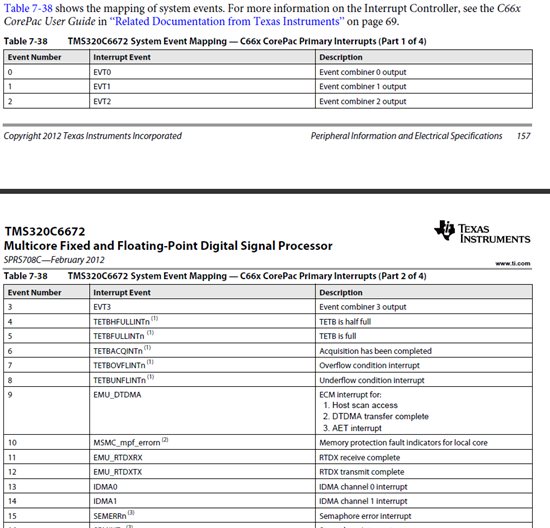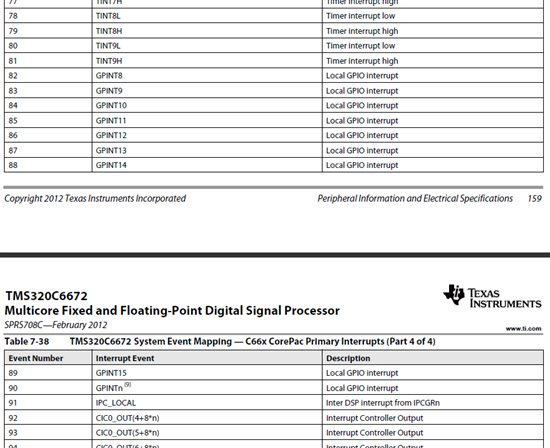Hi.
Section 7.9 in TMS320C6672 data maual illustrates that the event number of GPINTn is 90 and 'n' is the CorePac number.
Does that mean it is impossible to make GPIO2 ~ GPIO7 as interrupt sources on TMS320C6672 board?
Or, if there is a way, please let me know.
Thanks.



